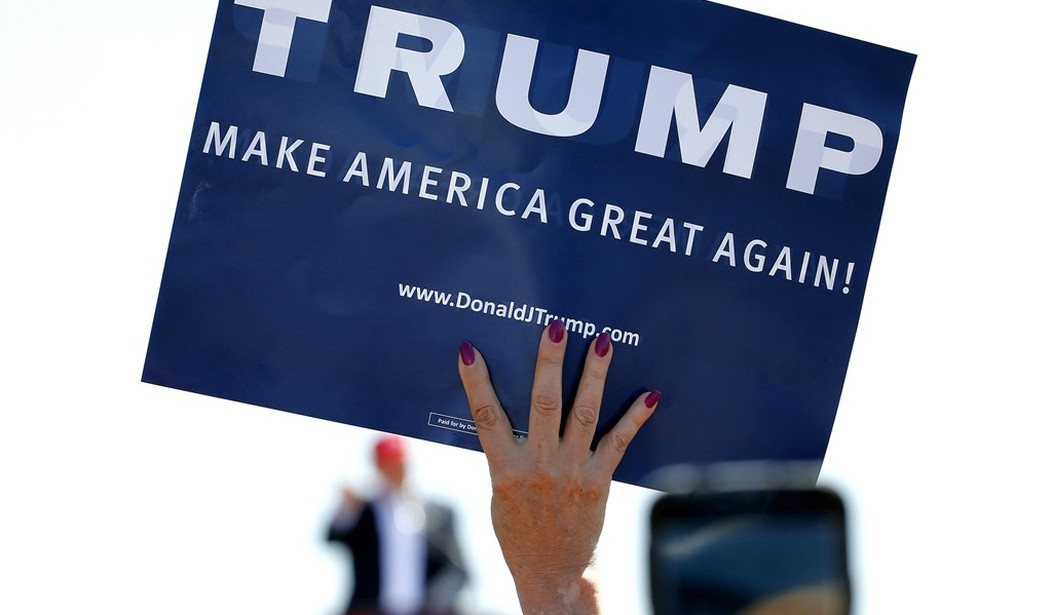"Ronald Reagan is dead, and he's not coming back."
"I wish more conservatives could come to grips with this relatively simple fact. We are now in something like the fifth round of the pin-the-tail-on-the-next-Reagan game and it's getting old. Catering to the conservative base, the GOP presidential candidates keep trying to put on the Reagan mantle the way Cinderella's ugly stepsisters tried to cram their dogs into her glass slipper. Not gonna happen."
I wrote the above nine years ago. I'm not plagiarizing myself to save time, but to point out that Reagan obsession on the right has been a problem for a long time. Every election season, Republican candidates start rising to their feet to declare, like the slave rebels in "Spartacus," "I'm Ronald Reagan!" "No, I'm Ronald Reagan!"
My favorite version came from Bob Dole in 1996. He couldn't bring himself to fully commit to the play-acting, saying instead, "I'll be Ronald Reagan if that's what you want."
My objection to this Reaganophilia isn't derived from any antipathy toward the Gipper. He was a great man and a great politician.
Rather, the problem is with using Reagan as a kind of ideological shorthand. Asking "What Would Reagan Do?" about challenges Reagan never faced has limited value.
Before the GOP became the Party of Reagan, it was the Party of Lincoln. But you wouldn't expect a Republican politician to spend a lot of time promising to free the slaves or preserve the Union. Trying to see today's economic problems thru Reagan-colored glasses isn't impossible -- we're still over-regulated by a too-large government -- but it can be distorting.
Similarly, casting the war on terrorism as a replay of the long battle against communism (which Reagan won) can be done, but it requires bending reality to theory. Marxism was a relatively brief and modern imposition on ancient cultures. Islam is an ancient religion, and radical Islam is an effort to fight off the imposition of modernity. Different threats and different contexts require different thinking.
Recommended
All of these criticisms still stand. What's different these days is the desperate effort to insist that Donald Trump is a new Reagan -- not by Trump himself, but by a kind of conservative priesthood eager to prove by analogy what it can't prove with facts or logic.
Newt Gingrich, Bill Bennett and Rudy Giuliani are just a few of the prominent conservatives miraculously finding Reaganism in the outbursts of a loutish and crude real estate developer the way the high lamas of Buddhism try to identify a new dalai lama based on a baby's gurgling.
Most of their arguments are shockingly spurious given the intellects involved. Among the most common: "They said Reagan couldn't win, too." Logically, this has nothing to do with Trump's alleged resemblance to Reagan (or Trump's general election chances). "They" -- whoever they are -- also claimed Kermit the Frog couldn't win 270 electoral votes. That doesn't mean they were wrong, or that Kermit is an amphibious Reaganite.
Indeed, all of the "They said X about Reagan, too" arguments are preposterous, but one stands out: "They said Reagan was a dunce, too."
Of course, "they" were wrong about Reagan. But the "they" in 1980 were overwhelmingly liberal. Trump's most important critics are overwhelmingly conservative. The claim that conservatives in 2016 are wrong about Trump because liberals 36 years ago were wrong about Reagan is a hard one to diagram on a grease board. And getting to the conclusion that these combined errors mean Trump is Reagan-like is the logical equivalent of crossing a canyon in three leaps.
In terms of personal character and ideological seriousness, Trump and Reagan could not be more different. Reagan was one of the most dignified politicians of the 20th century, one who turned his cheek to vicious attacks, refused to use profanity and rarely showed an angry side. Meanwhile, Trump's crude and vengeful streaks virtually define the man.
Reagan's ideological principles were derived from decades of reading, speaking and debating. Trump, meanwhile, is winging it.
"I don't think he has an ideology," Pat Buchanan told the Washington Post. "He very much is responding to the realities that he has encountered and his natural reactions to them. It's not some intellectual construct."
Here lies both the irony and farce of the cult-like effort to anoint Trump as the second coming of Reagan. The one meaningful similarity between the two men is that they can both be seen as authentic responses to their times. The difference? Reagan was the right response.

























Join the conversation as a VIP Member